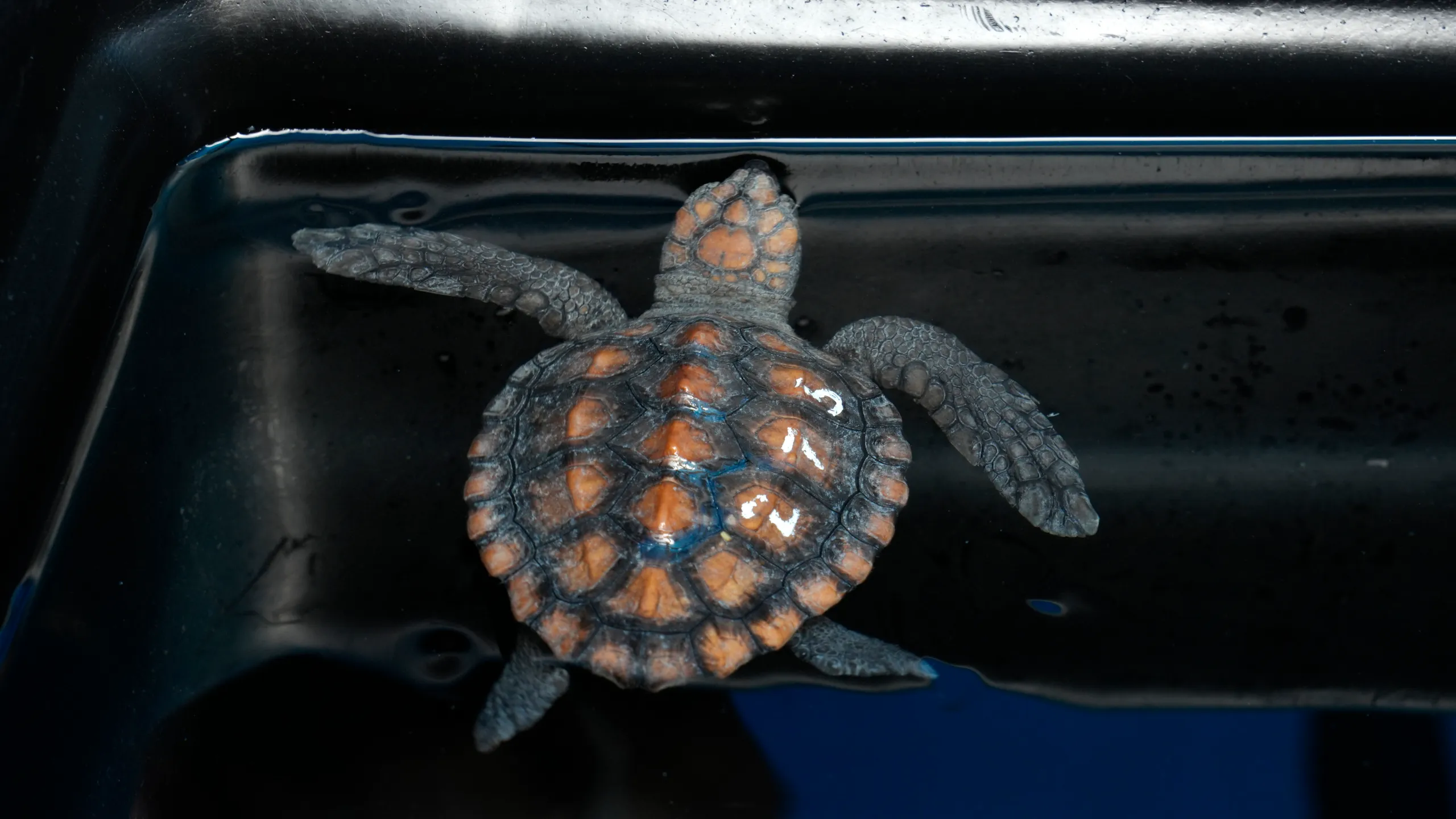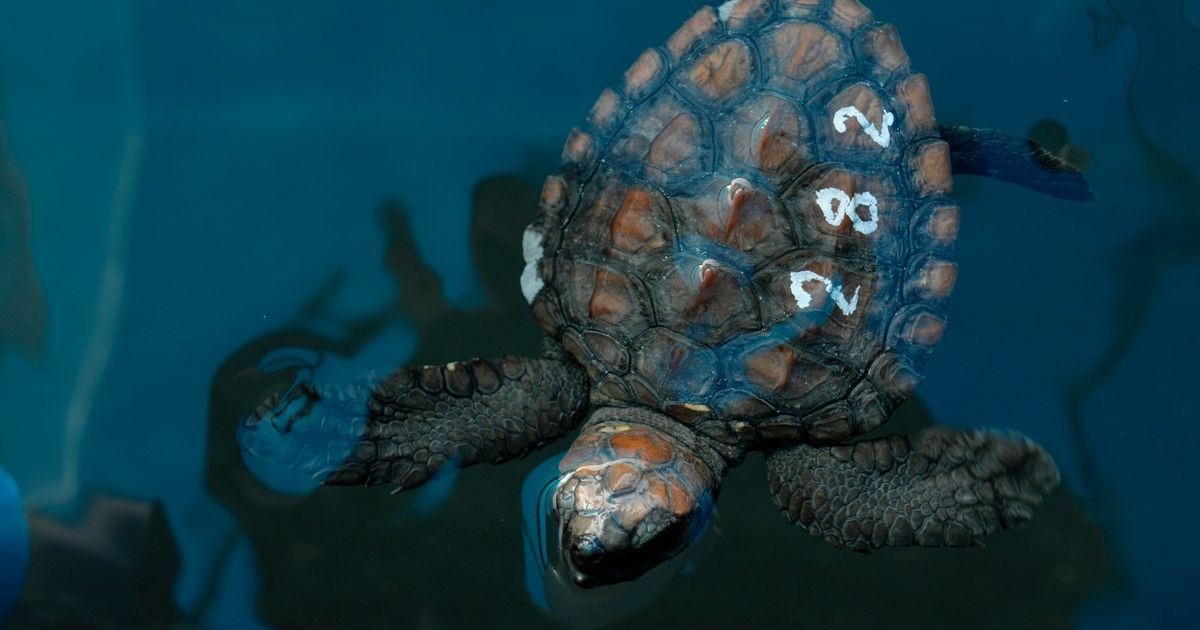The Two Oceans Aquarium in Cape Town, South Africa, finds itself overwhelmed as it accommodates over 500 baby sea turtles that were washed ashore by a rare and powerful storm. Most of these turtles, primarily endangered loggerheads, were supposed to be navigating the open ocean but are now under the care of the aquarium’s Turtle Conservation Center. With around 400 of these turtles undergoing rehabilitation at the center, the remainder are being distributed to other aquariums to manage the influx.
In their natural habitat, baby sea turtles face the daunting task of survival from the moment they hatch on beaches and begin their journey towards the ocean. The loggerhead turtles involved in this incident likely hatched on the northeast coast of South Africa and were carried by the warm Indian Ocean Agulhas Current before being deposited in the colder Atlantic Ocean near Cape Town—an occurrence not uncommon in the region.

Hundreds of Baby Sea Turtles Saved After Storm Washes Them Onto Shore (Credits: FOX 21 News Colorado)
While the influx of stranded turtles isn’t entirely unusual, the magnitude of this event is unprecedented for the conservation center. Normally receiving only, a fraction of the current number over several months, the sudden arrival of over 500 turtles in just two weeks has strained resources and disrupted planned budgets. Each turtle requires an estimated $500 for rehabilitation before being released back into the warmer Indian Ocean.
Beyond the immediate challenges posed by the storm, the conservationists have been confronted with another concerning issue—plastic pollution in the ocean. Many of the turtles rescued had ingested small pieces of plastic, highlighting the pervasive threat posed by marine pollution. This revelation underscores the urgent need for increased efforts to address plastic waste and protect marine environments.
As Talitha Noble-Trull, head of the Turtle Conservation Center, emphasizes, sea turtles serve as crucial indicators of ocean health. Their ingestion of plastic debris serves as a stark warning about the perilous state of our oceans. The need to collect and analyze data on plastic pollution is paramount, as it provides vital insights into the threats faced by marine life and underscores the urgent need for conservation efforts to safeguard fragile ecosystems.























